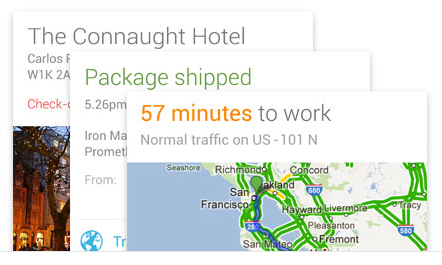Startups and large tech companies such as Google are working on predictive search, a software service that acts as a digital personal assistant, anticipating needs and wants before being asked, and presenting this information to the user. This is the newest development in Web searching, particularly with mobile devices. As it becomes more mainstream, some are concerned about privacy and whether the constant data will be less than helpful.
 Predictive search works as an application that reads email, scans the calendar, traces one’s location, analyzes traffic, monitors social media activity and uses all this and other information to determine or guess what the user may want. A smartphone may notify the user when to leave for a trip or dinner reservation, for example, or when an expected packaged will arrive.
Predictive search works as an application that reads email, scans the calendar, traces one’s location, analyzes traffic, monitors social media activity and uses all this and other information to determine or guess what the user may want. A smartphone may notify the user when to leave for a trip or dinner reservation, for example, or when an expected packaged will arrive.
The technology automatically uses personal data, previous searches or accessed data, and other scannable information in order to work. These services will most likely become a more common feature, and can spread to other devices and appliances.
Currently, Google has its Google Now predictive search that runs on newer Android and iOS devices, and can be used along with Google Glass for instant, predictive updates. Other apps using this type of technology include Cue, reQall, Donna, Tempo AI, MindMeld and Evernote.
For some, predictive search is the latest digital intrusion into everyday life. The constant mining of personal data borders on alarming to helpful.
“To the question of creepiness, the answer is it depends who you ask,” suggests Andrea M. Matwyshyn, an assistant professor at the Wharton School of the University of Pennsylvania. “What works for a group of 30-something engineers in Silicon Valley may not be representative of the way that 60- year-old executives in New York tend to use their phones.”
Some skeptics say pushing ads and other unwanted information could be annoying or even a violation of privacy to the end user, explains The New York Times. If someone watched a movie trailer on YouTube that they hated, Google Now may send local showtimes when the film arrives in their city.
“People could find the interface disruptive rather than helpful,” said Matwyshyn.

No Comments Yet
You can be the first to comment!
Leave a comment
You must be logged in to post a comment.